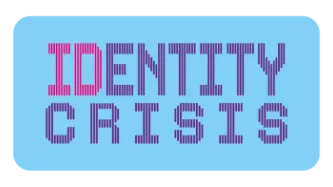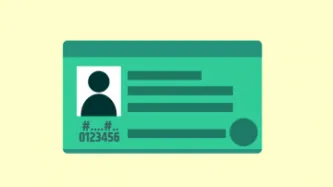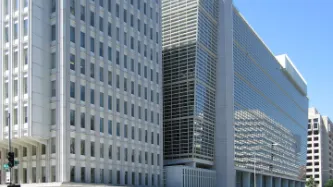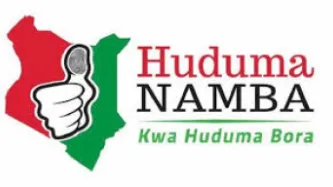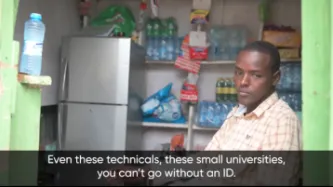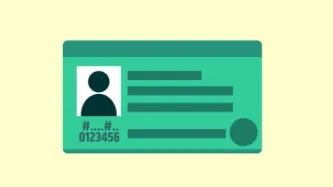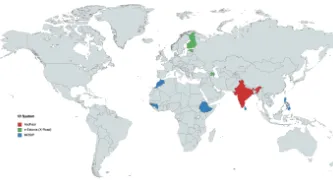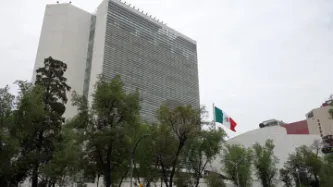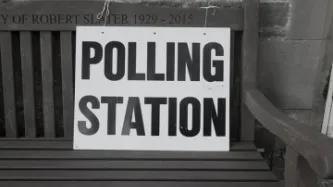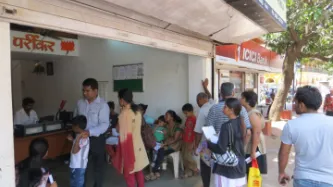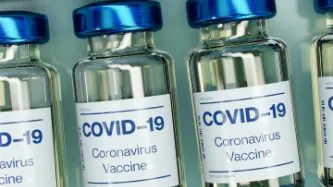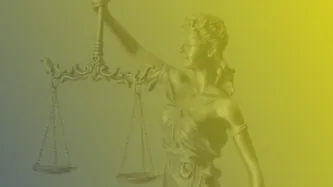Search
Content type: Explainer
On International Identity Day, we are highlighting that the technology-driven ID systems being implemented around the world are leading to new forms of surveillance and exclusion.Last September, PI and its global network of partners launched Identity Crisis - a campaign to change the narrative on identity systems. Around the world PI and our partners have seen ID systems creating and facilitating exclusion, insecurity, and surveillance.To learn more, watch our Identity Crisis video, in which…
Content type: Case Study
This piece was written by Privacy International, based on publicly available information and on research by our partners at Hiperderecho
Overview
The Documento Nacional de Identidad (DNI) is the personal ID card recognised by the Peruvian State in any situation where a person might have to identify themselves, be it in an administrative, judicial, civil, or commercial context. The DNI also grants its holder the right to vote.
The DNI issuing and overseeing body is the Registro Nacional de…
Content type: Advocacy
We, the undersigned civil society organizations and individuals, urge the World Bank and other international organizations to take immediate steps to cease activities that promote harmful models of digital identification systems (digital ID).
The signatories of this letter are located in different countries, work with diverse communities, and bring a wide range of expertise. Among this group, there are many shared concerns and similar experiences documenting the harmful impacts…
Content type: Advocacy
Read in English
Nosotros, las organizaciones de la sociedad civil y los individuos abajo firmantes, instamos al Banco Mundial y a otras organizaciones internacionales a que tomen medidas inmediatas para cesar las actividades que promueven modelos perjudiciales de sistemas de identificación digital (ID digital).
Los firmantes de esta carta se encuentran en diferentes países, trabajan con diversas comunidades y aportan una amplia gama de conocimientos. Entre este grupo, hay muchas…
Content type: News & Analysis
In a ruling handed down on 14 October 2021 by the High Court of Kenya in relation to an application filed by Katiba Institute calling for a halt to the rollout of the Huduma card in the absence of a data impact assessment, the Kenyan High Court found that the Data Protection Act applied retrospectively.
Background to the case
Huduma Namba as initially proposed
In January 2019, the Kenyan Statute Law (Miscellaneous Amendment) Act No. 18 of 2018 came into effect, introducing a raft of amendments…
Content type: Video
In Kenya, if you don’t have an ID, life can be extremely difficult. But for thousands of people across the country, getting an ID can be nigh on impossible. Some Kenyan citizens can’t obtain a national ID because they are registered in the Kenyan refugee database. Often referred to as victims of double registration, their predicaments reveal a deeper problem with ID itself.Now Haki na Sheria - a Kenyan organisation advocating for and supporting the victims of double registration - and three…
Content type: Case Study
This written piece is part of PI's wider research into the tech behind ID systems around the world. Click here to learn more.
Overview
Aadhaar (Hindi for ‘foundation’) is India’s ID programme, the largest in the world, surpassing 1 billion sign ups in just under 6 years. This programme aims to give every citizen a unique, biometrically-verifiable identification number. Each user receives a card with their number on it, which can be cross-referenced with the biometric data held in a government…
Content type: Long Read
For over 20 years with the start of the first use of ICTs in the 1990s, we have seen a digital revolution in the health sector. The Covid-19 pandemic significantly accelerated the digitalisation of the health sector, and it illustrates how fast this uptake can be and what opportunities can emerge; but also, importantly, the risks that it involves.
As we've said many times before, whilst technologies can be part of the solution to tackle some socio-economic and political challenges facing our…
Content type: Case Study
This written piece is part of PI's wider research into the tech behind ID systems around the world. Click here to learn more.
Overview
The Modular Open Source Identity Platform (MOSIP) is an open source, open standards based foundational identity platform. MOSIP is an API first platform that can be used by user organisations such as Governments to build their own foundational national ID platforms. MOSIP offers ID life-cycle management features and identity verification capabilities out of the…
Content type: Long Read
Governments around the world are increasingly making registration in national digital ID systems mandatory for populations, justifying its need on a range of issues from facilitating access to services, to national security and fighting against corruption. This is an attempt to create a "foundational identity" for an individual, or "a single source of truth" about who someone is, according to a government agency. These identity systems are run by governments, sometimes by private companies, or…
Content type: Advocacy
Some of the most vulnerable groups in Mexico are amongst the groups at risk from a draft General Population Law that creates a biometric “Unique Digital Identity Card” (CUID), argue civil society organisations. The proposed law has now reached the senate, and has raised serious concerns from civil society organisations. Led by our global partner in Mexico Red en Defensa de los Derechos Digitales (R3D), PI along with 25 organisations have signed a joint letter to the members of the senate,…
Content type: News & Analysis
After almost 20 years of presence of the Allied Forces in Afghanistan, the United States and the Taliban signed an agreement in February 2020 on the withdrawal of international forces from Afghanistan by May 2021. A few weeks before the final US troops were due to leave Afghanistan, the Taliban had already taken control of various main cities. They took over the capital, Kabul, on 15 August 2021, and on the same day the President of Afghanistan left the country.As seen before with regime…
Content type: Advocacy
On 6 August 2021, the World Health Organisation (WHO) published its technical specifications and implementation guidance for “Digital Documentation of COVID-19 Certificates: Vaccination Status” (DDCC:VS) following months of consultations. As governments around the world are deploying their own Covid-19 certificates, guidance from the global health agency was expected to set a global approach, and one that prioritises public health. As such, we would expect the WHO to identify what these…
Content type: News & Analysis
Legislation to "strengthen the integrity of UK elections and protect our democracy" through the Elections Integrity Bill was introduced to parliament this week.
This legislation will require people, for the first time in Great Britain, to show a state-issued photo ID, such as a driving license or passport, in order to exercise their right to vote, perhaps by the 2023 General Elections. The changes would affect elections in England, Scotland and Wales while voters in Northern Ireland are already…
Content type: Long Read
Social protection programmes can be broadly understood as government support for individuals to meet basic human needs, protecting citizens from the “economic risks and insecurities of life”. These policies and programmes are essential to reducing the lifelong consequences of poverty and exclusion. Programmes like cash transfers – including child grants, school meals, skills development and more – help connect families with health care, nutritious food and quality education. To ensure that…
Content type: Long Read
This piece was last updated in June 2021.
In many countries, access to social protection (such as welfare programmes or healthcare) is made conditional on producing a form of identification (“ID”). But obtaining a recognised and accurate ID is often a process riddled with discriminatory designs, bureaucracy and technical failures that prevent individuals from accessing the services they are entitled to. Even when people eventually get an ID, it might not accurately reflect who they are,…
Content type: Long Read
This report is available in English.
La mayoría de los documentos nacionales de identidad y demás documentos emitidos por autoridades estatales incluyen un marcador de género. Estos marcadores suelen recibir el nombre de “marcador de sexo” aunque este término no sea preciso. La presencia de dichos marcadores, especialmente en los certificados de nacimiento, promueve el énfasis de nuestra sociedad en el género como criterio de asignación de identidades, roles y responsabilidades sociales. Al…
Content type: Long Read
Este informe está disponible en español.
Most national ID or identifying documents include a gender marker. This is often known as a 'sex marker,' even though the term is inaccurate. The presence of such markers, especially on birth certificates, contribute to our society’s emphasis on gender as a criterion for assigning identities, roles and responsibilities within society. With gender being such a determining and dominant identifier, it puts it at the centre of so many arrays of our…
Content type: Long Read
As we see Covid-19 vaccination programmes beginning around the world, for the first time since the start of the pandemic there seems to be a light at the end of the tunnel as the fruition of truly unrivalled global scientific efforts has given us hope of saving lives, reopening our societies, and going back to “normal”.
This great moment of hope must not be seen opportunistically as yet another data grab. The deployment of vaccines, and in particular any “immunity passport” or certificate…
Content type: Report
National identity systems naturally implicate data protection issues, given the high volume of data necessary for the systems’ functioning.
This wide range and high volume of data implicates raises the following issues:
consent as individuals should be aware and approve of their data’s collection, storage, and use if the system is to function lawfully. Despite this, identity systems often lack necessary safeguards requiring consent and the mandatory nature of systems ignores consent…
Content type: Report
While identity systems pose grave dangers to the right to privacy, based on the particularities of the design and implementation of the ID system, they can also impact upon other fundamental rights and freedoms upheld by other international human rights instruments including the International Covenant on Civil and Political Right and the International Covenant on Economic, Social and Cultural Rights such as the right to be free from unlawful discrimination, the right to liberty, the right to…
Content type: Long Read
Immunity Passports have become a much hyped tool to cope with this pandemic and the economic crisis. Essentially, with immunity passports those who are 'immune' to the virus would have some kind of certified document - whether physical or digital. This 'passport' would give them rights and privileges that other members of the community do not have.
This is yet another example of a crisis-response that depends on technology, as we saw with contact-tracing apps. And it is also yet another…
Content type: Explainer
Definition
An immunity passport (also known as a 'risk-free certificate' or 'immunity certificate') is a credential given to a person who is assumed to be immune from COVID-19 and so protected against re-infection. This 'passport' would give them rights and privileges that other members of the community do not have such as to work or travel.
For Covid-19 this requires a process through which people are reliably tested for immunity and there is a secure process of issuing a document or other…
Content type: Advocacy
Privacy International welcomed the opportunity to contribute to the consultation on the Principles on Identification for Sustainable Development. Valuable lessons have been learnt, particularly in the last few years, on the serious consequences of identity systems. We have seen challenges in court that have found that key provisions of these systems are incompatible with the right to privacy enshrined in constitutions. We have seen civil society organisations highlighting the serious risks…
Content type: Long Read
Background
Kenya’s National Integrated Identity Management Scheme (NIIMS) is a biometric database of the Kenyan population, that will eventually be used to give every person in the country a unique “Huduma Namba” for accessing services. This system has the aim of being the “single point of truth”, a biometric population register of every citizen and resident in the country, that then links to multiple databases across government and, potentially, the private sector.
NIIMS was introduced…
Content type: News & Analysis
On 30 January 2020, Kenya’s High Court handed down its judgment on the validity of the implementation of the National Integrated Identity Management System (NIIMS), known as the Huduma Namba. Privacy International submitted an expert witness testimony in the case. We await the final text of the judgment, but the summaries presented by the judges in Court outline the key findings of the Court. Whilst there is much there that is disappointing, the Court found that the implementation of NIIMS…
Content type: News & Analysis
Photo by Sharon McCutcheon on Unsplash
In May, the United Nations Special Rapporteur on extreme poverty and human rights, Philip Alston invited all interested governments, civil society organisations, academics, international organisations, activists, corporations and others, to provide written input for his thematic report on the human rights impacts, especially on those living in poverty, of the introduction of digital technologies in the implementation of national social protection…
Content type: News & Analysis
The Irish Data Protection Commissioner has made a ruling on the controversial Public Services Card (PSC) that has described much of what is is done with the card as unlawful. The PSC has proven controversial: introduced in 2012 for welfare claimants, it's use expanded to more and more uses, including its use to get a driving licence or passport. Now, following campaigns from civil liberties organisations, this expansion of use has now been found to be unlawful by Ireland's Data Protection…
Content type: Long Read
IMAGE SOURCE: "My Phone Bought This" by oliver t is licensed under CC BY-NC-ND 4.0.
LAST UPDATE: 16th May 2022.
Mandatory SIM card registration laws require people to provide personal information, including a valid ID or even their biometrics, as a condition for purchasing or activating a SIM card. Such a requirement allows the state to identify the owner of a SIM card and infer who is most likely making a call or sending a message at any given time.
SIM card…
Content type: Explainer
Photo credit: warrenski
Mandatory SIM card registration eradicates the potential for anonymity of communications, enables location-tracking, and simplifies communications surveillance and interception. By facilitating the creation of an extensive database of user information, it places individuals at risk of being tracked or targeted, and having their private information misused. In the absence of comprehensive data protection legislation and judicial oversight, SIM users' information can be…
